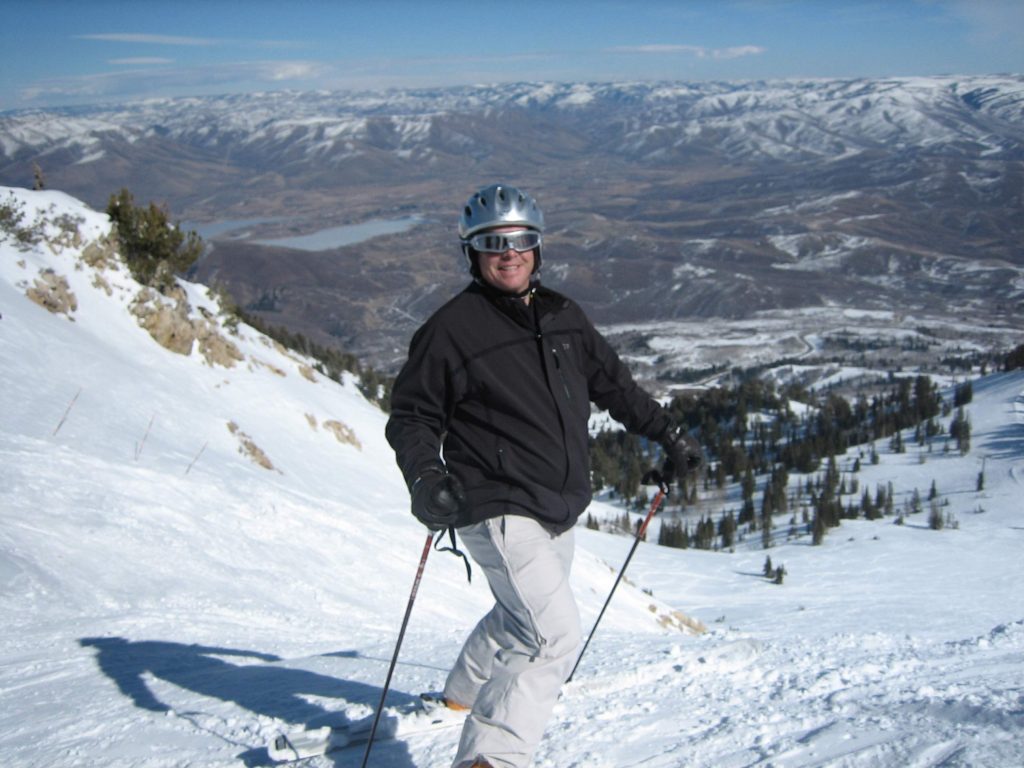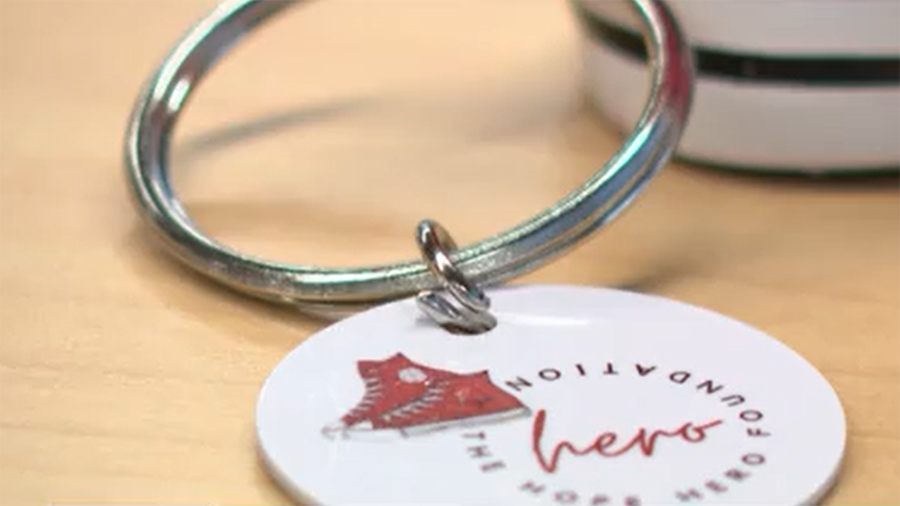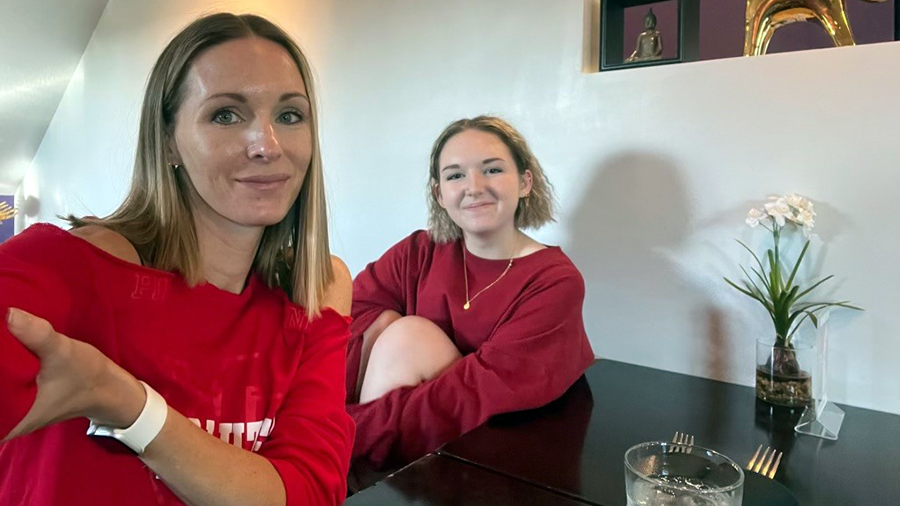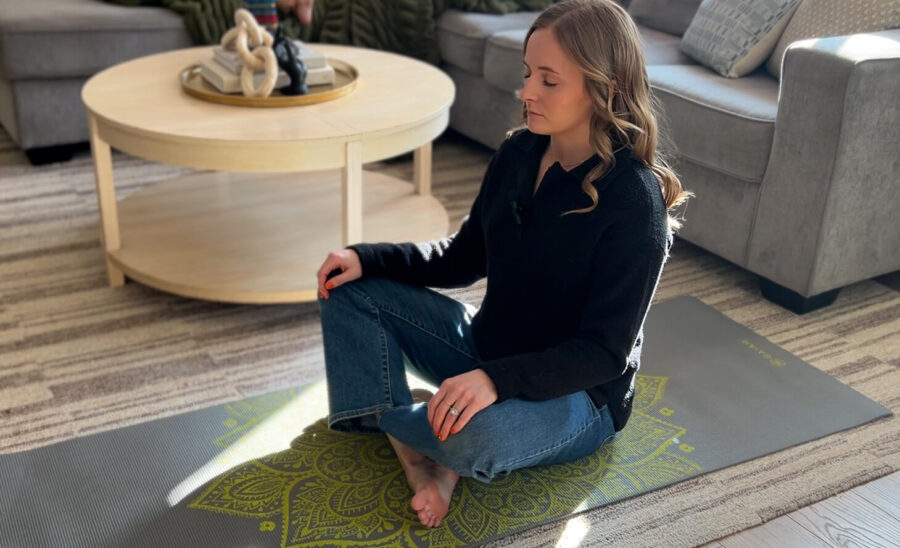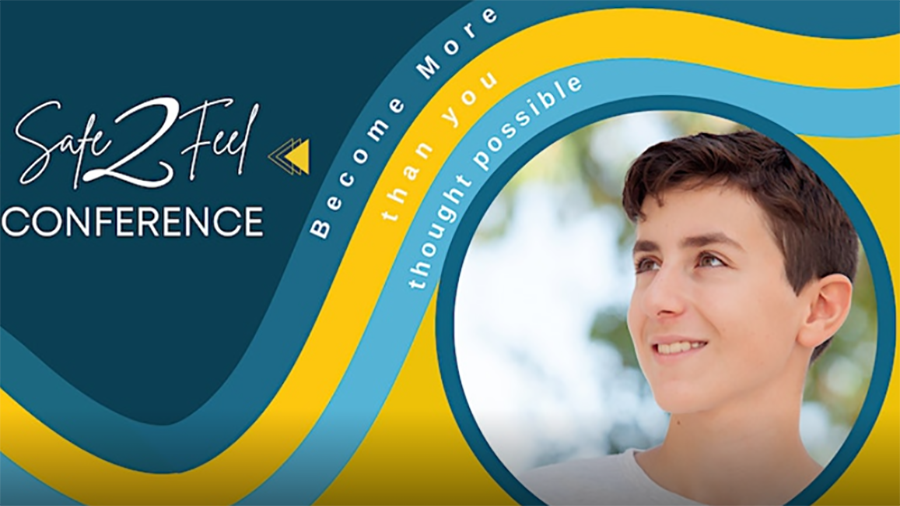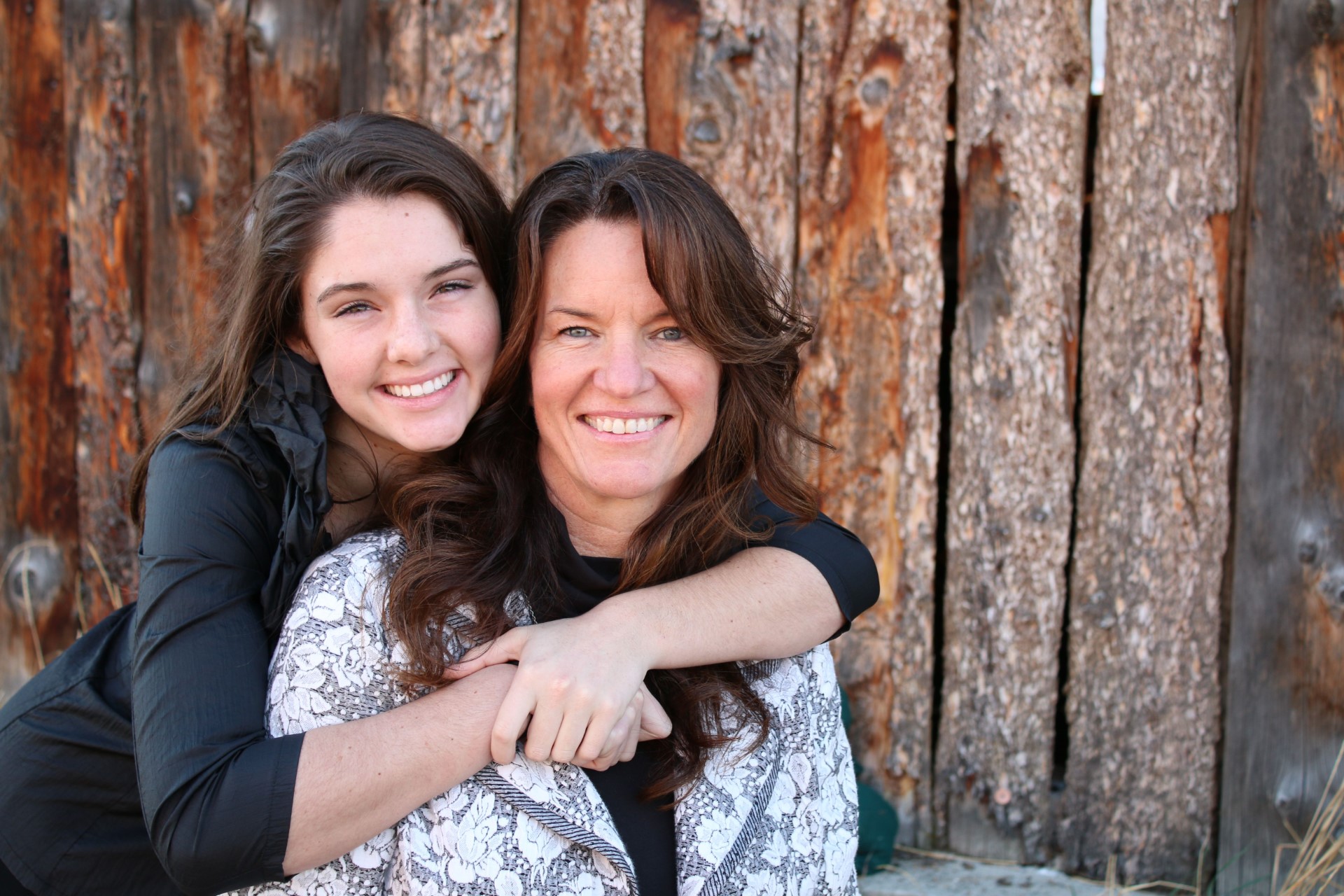Family, friends hope proposed law will save lives one year after doctor’s death
Feb 21, 2022, 6:19 PM | Updated: Jun 13, 2022, 4:45 pm
SALT LAKE CITY — It’s been one year since a Utah doctor died by suicide. Those who loved him most are demanding change on Utah’s Capitol Hill. They hope a proposed law could save lives.
Someone was missing on a bluebird day at Snowbasin Ski Resort.
“He enjoyed it so much up here,” said Jackie Jolley, who lives in Ogden.
Her husband, Dr. Scott Jolley, loved to ski there. He was an emergency physician at Intermountain Healthcare.
“We enjoyed riding the gondola. Memories of us being happy, enjoying our family, our kids.”
But his life took a turn during the long hours and added stress of the pandemic.
A mental health crisis followed.
“We had him admitted to the same facility that he worked at and it was a disaster,” Jolley said.
Scott’s own hospital system was his only option covered by insurance. But Jackie says being treated by his colleagues was extremely difficult for her husband.
Myles Greenberg, former ER physician, and Scott’s best friend, said, “‘What kind of gossip is going to be talked about in the hallways?’ Or, “What are my colleagues, that I’m constantly consulting on patients, what are they going to think of me?’”
Greenberg said Scott did all he could to be released, and days later, died by suicide. That’s why they want to expand access to coverage for medical caregivers.
Rep. Steve Eliason, R-Sandy, said, “It’s a barrier for people seeking help who are on the front lines of healthcare.”
Scott’s death inspired HB 278, which would require insurance companies to cover out-of-network mental health care for medical caregivers.
“They’re people, too,” Eliason said. “We need them to be in as good of shape as they can because they’re taking care of all of us.”
Physicians have a much higher chance of dying from suicide than their patients, according to Medscape. Three hundred-400 doctors die by suicide each year in the U.S., or about a doctor a day.
Dr. Mark Rappaport, CEO of Huntsman Mental Health Institute said, “Physicians are taught to care for others, but are not necessarily taught to care for themselves.”
Rappaport said that, along with the high-pressure nature of medicine, puts staff at risk. He says giving them flexibility in mental health care will save lives.
“It will allow them to be better providers of care. It’ll allow them to have richer lives,” he said. “It’ll allow them to be better parents.”
Changing the system is a tall mountain for Jackie and Myles to summit, but they say if Scott could have gone somewhere else for treatment, this bluebird day wouldn’t be so lonely.
“I think that he would be here today,” Jolley said.
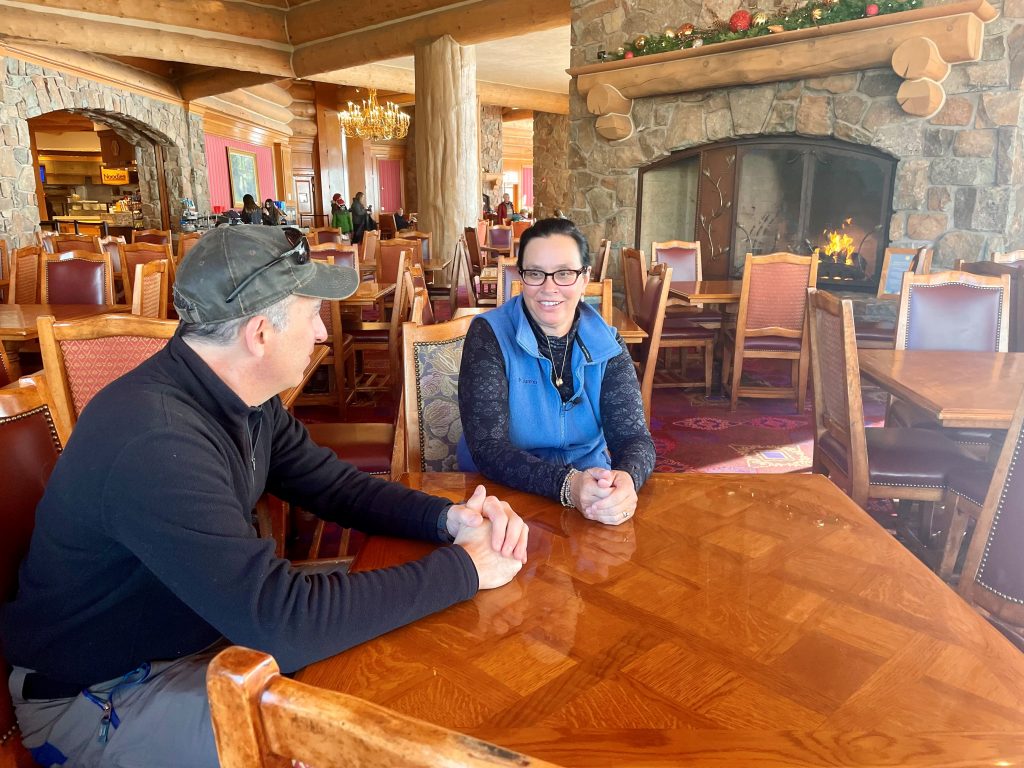
Jackie Jolley and Myles Greenberg enjoy the lodge at Snowbasin Ski Resort for the first time since Dr. Scott Jolley’s death.
Suicide prevention resources
If you or someone you know is experiencing suicidal thoughts or exhibiting warning signs, call the National Suicide Prevention Lifeline at 1-800-273-TALK (8255) or the Utah Crisis Line at 1-800-273-8255, which is answered 24/7/365 by crisis counselors at Huntsman Mental Health Institute.
You can also text TALK to 741741 and parents, students, and educators can download the SafeUT app chat or call 833-3SAFEUT to connect with a licensed crisis counselor.
Additional resources
- Parents, students, and educators can download the SafeUT app chat or call 833-3SAFEUT to connect with a licensed crisis counselor.
- First responders, including firefighters, law enforcement, EMS, and healthcare professionals, can chat with a crisis counselor at no cost 24/7/365 by downloading the SafeUT Frontline app and members of the National Guard can access help through the SafeUTNG app.
- For non-crisis situations, when you need a listening ear as you heal and recover from a personal struggle, call the Utah Warm Line at 1-833 SPEAKUT 8:00 a.m.-11:00 p.m., 7 days a week, 365 days a year.
- At Huntsman Mental Health Institute, women can access maternal mental health services including birth trauma, pregnancy loss, infertility, and perinatal mood and anxiety disorders.
- LiveOnUtah.org, a campaign by the Utah Suicide Prevention Coalition offers suicide prevention training and has resources for faith-based groups, youth, LGBTQ+, and Employers.
Other community-based organizations that provide suicide prevention services, support groups, mental health education, counseling services and support:
- NAMI Utah: education, support and advocacy for individuals and families impacted by mental illness
- Latino Behavioral Health Services: Latinx mental health education and support
- American Foundation for Suicide Prevention: Utah Chapter
- Encircle Utah: LGBTQ+ family and youth resource center
- Utah Pride Center: empowers Utah’s diverse LGBTQ+ community
- U.S. Department of Veterans Affairs mental health
- Center for Workplace Mental Health: suicide prevention and response for employers
Additional crisis hotlines
- Utah County Crisis Line: 801-226-4433
- Salt Lake County/UNI Crisis Line: 801-587-3000
- Wasatch Mental Health Crisis Line: 801-373-7393
- National Suicide Prevention Crisis Text Line: Text “HOME” to 741-741
- Trevor Project Hotline for LGBTQ teens: 1-866-488-7386

